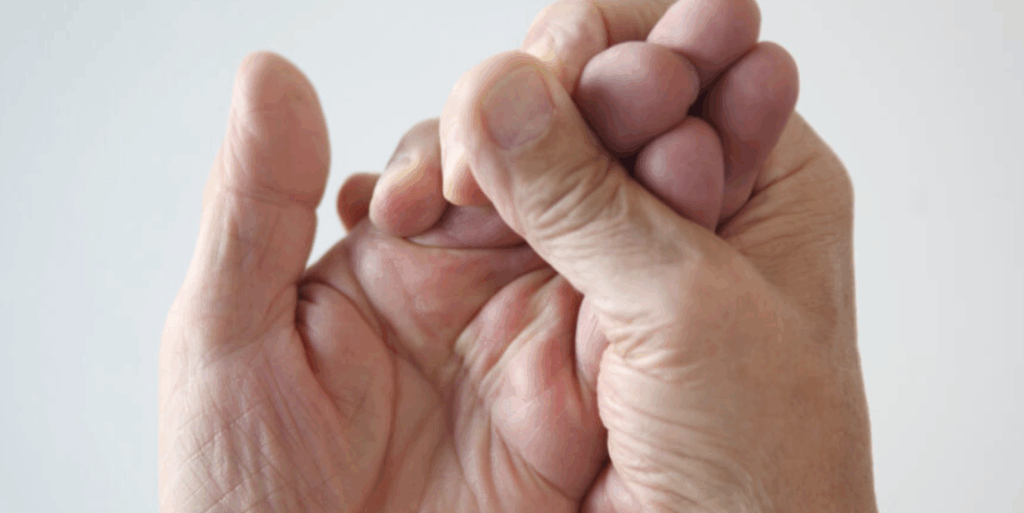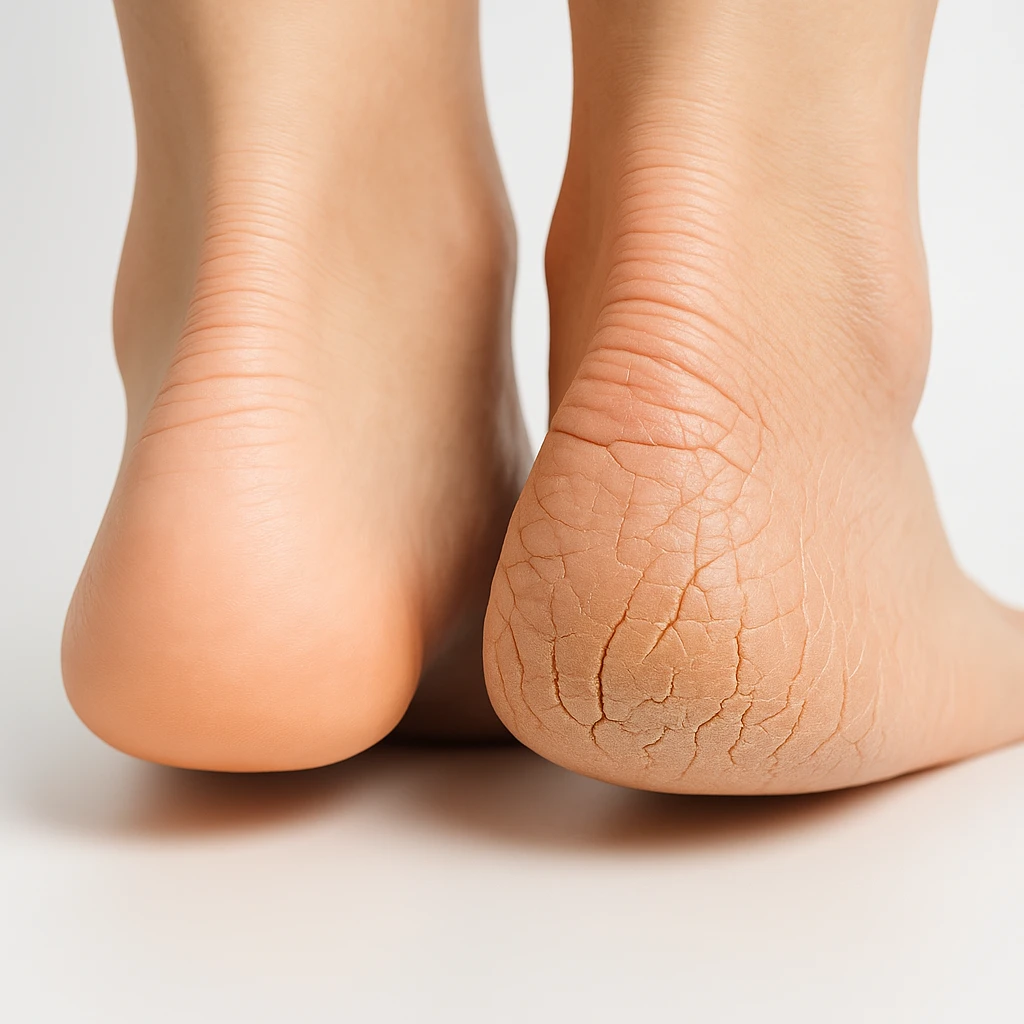Why Do My Fingers Go Numb at Night? Understanding Causes, Symptoms, and Treatments
- What Is Nighttime Finger Numbness and Why Does It Happen?
- Common Causes of Numb Fingers While Sleeping
- Which Fingers Are Numb? Why Location Matters
- Symptoms That Often Accompany Nighttime Numbness
- How Carpal Tunnel Syndrome Triggers Night Numbness
- Less Obvious Causes: Diabetes, Thyroid Issues, and Autoimmune Disease
- Sleep Position and Ergonomics: How Habits Contribute to Numbness
- When to See a Doctor: Signs It’s More Than Just Sleep Position
- Diagnostic Tests for Nighttime Hand Numbness
- Treatment Options: From At-Home Remedies to Medical Interventions
- Long-Term Risks of Ignoring Finger Numbness at Night
- Preventive Tips for Keeping Numbness Away
- The Role of Neck and Spine Issues in Finger Numbness
- How Pregnancy Can Cause Temporary Hand Numbness
- Nighttime Numbness in Aging Adults: What Changes with Age?
- Children and Teens: Can They Experience Finger Numbness at Night?
- FAQ

What Is Nighttime Finger Numbness and Why Does It Happen?
Waking up with numb fingers can be surprising and even frightening. Most of us chalk it up to “sleeping wrong,” but this sensation can be a sign of something more complex happening under the surface. Nighttime numbness in the fingers typically stems from nerve compression, circulation issues, or underlying health conditions that flare up during rest. When we sleep, we may unknowingly position our arms or hands in ways that press on nerves or restrict blood flow, triggering the tingling or dead sensation. But not every case is that simple—persistent or recurring numbness may signal carpal tunnel syndrome, diabetes-related nerve damage, or even cervical spine problems.
Understanding the context of when, how often, and which fingers go numb gives valuable insight into the root cause. This guide explores each potential reason in depth, helping you connect the dots and decide if your symptoms are just temporary—or a signal to seek medical care.
Common Causes of Numb Fingers While Sleeping
The most frequent culprit is compression of the nerves in the hand, wrist, or arm. When pressure is applied to nerves—whether from a bent wrist, tight bedding, or an underlying condition—nerve signals are disrupted, causing tingling, numbness, or weakness.
Carpal tunnel syndrome (CTS) is among the most common causes. It occurs when the median nerve is compressed at the wrist, often due to inflammation or repetitive strain. CTS typically affects the thumb, index, middle, and half of the ring finger. The symptoms often worsen at night when the wrist bends or is tucked under a pillow.
Other causes include:
- Ulnar nerve entrapment, which affects the pinky and half of the ring finger.
- Thoracic outlet syndrome, where blood vessels and nerves are compressed between the collarbone and first rib.
- Peripheral neuropathy, especially in people with diabetes.
- Cervical radiculopathy, where a pinched nerve in the neck causes radiating numbness down the arm.
If finger numbness only happens occasionally and resolves quickly, it’s likely due to temporary positioning. However, if it’s frequent, painful, or affects daily life, it’s time to dig deeper.

Which Fingers Are Numb? Why Location Matters
The specific fingers that feel numb at night can actually tell you a lot about what’s going on inside your body. Different nerves control different fingers, so pinpointing the affected ones can help identify the root cause.
- Thumb, index, middle, and part of the ring finger: This pattern typically indicates compression of the median nerve, most likely due to carpal tunnel syndrome.
- Ring finger and pinky finger only: That points toward the ulnar nerve, which might be compressed at the elbow or wrist—often a condition called cubital tunnel syndrome.
- All fingers or the entire hand: Could suggest issues in the brachial plexus, spinal cord, or vascular system rather than a single nerve.
- Alternating sides or fingers: This might be due to systemic issues like peripheral neuropathy, which often starts symmetrically in both hands or feet.
This “map of numbness” serves as a valuable diagnostic clue. If you consistently feel numb in specific fingers every night, tell your healthcare provider—they’ll know where to start.
Symptoms That Often Accompany Nighttime Numbness
Numbness is just one piece of the puzzle. People experiencing finger numbness at night often report a variety of associated symptoms that point toward more specific diagnoses.
- Tingling or “pins and needles” sensation, especially in the fingers or palm.
- Hand weakness upon waking or when using hands for tasks like gripping a cup.
- Burning pain or aching, which might radiate up the arm or into the shoulder.
- Clumsiness or frequent dropping of objects, especially in advanced stages.
- Stiffness in the fingers or wrist that improves after movement.
If the numbness is frequent and you notice some of these additional signs, it’s more than just poor sleeping posture. The combination of symptoms—especially when consistent—can be a strong indicator of nerve entrapment, inflammation, or systemic nerve damage. Identifying these red flags early can prevent permanent nerve damage.
How Carpal Tunnel Syndrome Triggers Night Numbness
Carpal tunnel syndrome (CTS) is one of the most well-documented causes of finger numbness at night. It occurs when the median nerve, which runs through a narrow passage in the wrist called the carpal tunnel, becomes compressed. This compression can result from inflammation, repetitive motions (like typing or using tools), pregnancy-related fluid retention, or underlying health conditions such as arthritis.
Why does it get worse at night? When we sleep, our wrists often bend naturally, reducing space in the carpal tunnel and increasing pressure on the median nerve. This interrupts nerve signals, leading to numbness, tingling, or burning pain in the thumb, index, middle, and part of the ring finger.
People with CTS often wake up shaking their hands or flexing their fingers to “get the feeling back.” If left untreated, CTS can lead to muscle wasting in the hand and permanent sensory loss, so early management—like wrist splints, nerve glides, and ergonomic changes—is crucial.
Less Obvious Causes: Diabetes, Thyroid Issues, and Autoimmune Disease
Not all nighttime numbness stems from mechanical compression. Several medical conditions can impair nerve function systemically, making symptoms more likely to show up when the body is at rest.
- Diabetes is a leading cause of peripheral neuropathy, which gradually damages small nerves in the hands and feet. The damage often starts with tingling or numbness, especially noticeable at night.
- Hypothyroidism, or low thyroid function, can lead to swelling in the tissues surrounding nerves, particularly the median nerve in the wrist.
- Rheumatoid arthritis and lupus can cause nerve compression from joint inflammation or immune attacks on nerve tissue.
- Vitamin B12 deficiency affects nerve health and can lead to numbness, especially in people over 50 or those with absorption disorders.
In these cases, numbness may be accompanied by fatigue, weight changes, cold intolerance, or joint stiffness. Identifying the systemic root is key—treating the underlying condition often leads to nerve symptom improvement.

Sleep Position and Ergonomics: How Habits Contribute to Numbness
Even in healthy individuals, finger numbness at night can often be explained by posture and positioning. How you sleep plays a significant role in compressing nerves or restricting blood flow.
Sleeping with the arms overhead or curled under the pillow can compress the brachial plexus, a bundle of nerves traveling from the neck into the arms. Similarly, bending the elbows sharply or tucking hands under the head can pinch the ulnar nerve, causing pinky and ring finger numbness.
Poor pillow support can also lead to neck misalignment, which may irritate cervical nerves. Over time, these patterns become habitual—and so does the numbness.
If you wake up with symptoms, try adjusting your sleeping position using a wrist brace or cervical pillow. Often, simple changes in posture make a dramatic difference in how your nerves respond overnight.
When to See a Doctor: Signs It’s More Than Just Sleep Position
Occasional numbness that resolves quickly may not require a doctor’s visit. But if the numbness persists, worsens, or interferes with daily tasks, it’s time to seek medical attention. These red flags suggest deeper nerve or systemic issues:
| Red Flag | Possible Cause |
| Numbness lasting more than 30 minutes | Nerve compression, cervical issues |
| Muscle weakness or clumsiness | Carpal tunnel, nerve degeneration |
| Pain radiating to shoulder or neck | Cervical radiculopathy, thoracic outlet |
| Numbness in both hands or feet | Diabetes, vitamin deficiency |
| Sudden onset after trauma | Fracture, dislocation, nerve damage |
| Weight loss, fatigue, or joint pain | Autoimmune, metabolic, or thyroid issues |
A physician may recommend nerve conduction studies, blood tests, or imaging like an MRI. Catching serious conditions early—before nerve damage becomes permanent—is crucial for successful treatment and long-term hand function.
Diagnostic Tests for Nighttime Hand Numbness
Once you seek medical advice for recurring finger numbness at night, your doctor will likely perform a thorough assessment to pinpoint the cause. Diagnosis typically begins with a physical exam and a detailed discussion of your symptoms—including which fingers are affected, how often, and whether the sensation spreads or is linked to pain or weakness.
If nerve compression is suspected, a nerve conduction study (NCS) or electromyography (EMG) may be ordered. These tests measure how well your nerves transmit signals and can identify carpal tunnel syndrome, ulnar neuropathy, or cervical radiculopathy.
For systemic conditions, your provider may order blood work to check for:
- Blood glucose levels, to assess for diabetes.
- Thyroid function tests, to rule out hypothyroidism.
- Vitamin B12 and folate levels, as deficiencies impact nerve health.
- Inflammatory markers, like ESR or CRP, which may signal autoimmune diseases.
In rare cases, an MRI or CT scan of the spine or wrist may be needed to visualize nerve compression or disc issues. Proper diagnosis is essential—effective treatment depends on identifying the exact origin of the numbness.

Treatment Options: From At-Home Remedies to Medical Interventions
Managing nighttime numbness in the fingers depends on its underlying cause. For mild or posture-related cases, conservative measures often bring noticeable relief:
- Wrist splints or braces worn at night help keep the wrist in a neutral position, reducing median nerve compression.
- Changing sleeping positions and using ergonomic pillows can ease pressure on neck and shoulder nerves.
- Gentle stretches and nerve gliding exercises improve mobility and reduce irritation in the wrist and forearm.
For more persistent cases, doctors may recommend:
- Anti-inflammatory medications or corticosteroid injections for reducing swelling and nerve irritation.
- Physical or occupational therapy, especially if muscle weakness or repetitive motion injury is involved.
- Treatment for underlying conditions like diabetes, thyroid imbalance, or vitamin deficiency.
In advanced cases of carpal tunnel or severe nerve compression, surgery might be necessary to relieve pressure and prevent permanent damage. But most people improve significantly with non-invasive care and lifestyle adjustments.
Long-Term Risks of Ignoring Finger Numbness at Night
It’s tempting to ignore occasional hand numbness—especially if it goes away on its own. But when the problem recurs night after night, or spreads beyond just tingling, there’s more at stake than a poor night’s sleep.
Untreated carpal tunnel syndrome can progress to thenar muscle atrophy—a visible wasting of the muscle at the base of the thumb—along with permanent sensory loss. Similarly, ulnar nerve entrapment can lead to grip weakness, coordination issues, and loss of fine motor control.
Systemic causes, such as diabetic neuropathy, get progressively worse without management. Prolonged high blood sugar levels silently damage nerves and blood vessels, leading to pain, weakness, and even ulceration in the hands or feet.
Early intervention not only improves symptoms but may prevent irreversible nerve damage. The sooner you understand the cause of nighttime numbness, the better your chances of protecting long-term hand function.
Preventive Tips for Keeping Numbness Away
The good news? You can take meaningful steps to reduce the chance of waking up with numb fingers. While not all causes are preventable—especially systemic ones—many cases related to posture and overuse are within your control.
Start with sleep hygiene: avoid positions that curl or compress your wrists and elbows. Use a wrist brace if you tend to bend your hands unconsciously. A supportive cervical pillow can also relieve neck pressure.
In daily life, reduce repetitive wrist motions and take frequent breaks during tasks like typing or manual labor. Keep your workstation ergonomically sound—wrists straight, elbows relaxed, and hands level with the keyboard.
Stay hydrated and nourish your nerves with foods rich in B vitamins, magnesium, and omega-3s. If you’re at risk for diabetes or thyroid issues, regular screenings can help catch problems early.
A proactive approach doesn’t just improve symptoms—it helps you avoid long-term complications and reclaim restful sleep.
The Role of Neck and Spine Issues in Finger Numbness
Many people don’t realize that problems in the cervical spine (neck) can cause numbness in the hands and fingers—especially during sleep. This is known as cervical radiculopathy, a condition where a nerve root in the neck becomes compressed, usually due to a herniated disc, bone spur, or degenerative disc disease.
When you lie down, spinal alignment may shift slightly, especially with poor neck support. This can increase pressure on nerves exiting the spinal cord. Depending on which nerve root is affected, the symptoms may radiate down the shoulder and into specific fingers—mimicking carpal tunnel or other localized nerve issues.
If your finger numbness is accompanied by neck pain, shoulder stiffness, or weakness in your arm, don’t ignore it. A spine specialist or neurologist can determine if the origin is cervical and suggest physical therapy, traction, anti-inflammatories, or in some cases, surgical decompression.
How Pregnancy Can Cause Temporary Hand Numbness
Nighttime finger numbness is surprisingly common during pregnancy, particularly in the third trimester. The cause is typically fluid retention, which increases pressure in tissues and can compress the median nerve at the wrist—leading to symptoms that closely resemble carpal tunnel syndrome.
Hormonal changes also contribute to joint laxity and swelling, which further narrow the carpal tunnel space. Numbness usually affects the thumb, index, and middle fingers and may worsen overnight due to hand position and pooled fluid.
Although it’s uncomfortable, pregnancy-related carpal tunnel is often temporary and resolves after delivery. In the meantime, many pregnant individuals find relief using:
- Nighttime wrist splints
- Elevating hands while sleeping
- Gentle stretches and hand exercises
If numbness becomes constant or severe, consult your OB-GYN. They may recommend conservative physical therapy or a referral to a hand specialist.
Nighttime Numbness in Aging Adults: What Changes with Age?
As we age, natural changes in our nervous and musculoskeletal systems make us more prone to hand numbness—especially during rest. The protective sheaths around nerves thin out, spinal discs lose hydration, and arthritic changes in the neck and joints can compress nerves more easily.
Conditions like degenerative cervical spondylosis or osteoarthritis may not be felt during the day but can become apparent at night when the body is at rest. Poor circulation, common in aging populations, can also contribute to tingling in the extremities.
Moreover, older adults are at higher risk of developing type 2 diabetes, thyroid disorders, or B12 deficiency, all of which affect nerve health. If you’re over 60 and experience frequent nighttime numbness, it’s worth checking for both mechanical and metabolic causes.
Don’t assume it’s “just age”—early attention can still prevent long-term dysfunction.
Children and Teens: Can They Experience Finger Numbness at Night?
While rare, children and adolescents can experience hand numbness during sleep—though the causes tend to differ from those in adults. The most common explanations include:
- Sleeping with arms in awkward positions, compressing nerves.
- Backpack overuse, especially when worn on one shoulder, leading to nerve irritation.
- Sports injuries, particularly from activities involving repetitive arm motion or impact.
- Nutritional deficiencies, such as low B12 or folate.
In most cases, the issue is temporary and resolves with better posture, stretching, or rest. However, persistent or recurring numbness in young people should not be ignored, especially if accompanied by muscle weakness, fatigue, or clumsiness.
A pediatrician may evaluate for underlying neurological, metabolic, or orthopedic issues, and early intervention can prevent long-term complications—even in growing bodies.
FAQ
Why do my fingers go numb only at night?
Finger numbness that appears exclusively at night often results from sleep positions that compress nerves, especially at the wrist or elbow. When you’re asleep, muscles relax, and the body stays still for long periods, which can allow slight pressure on nerves to become more noticeable. The median nerve (involved in carpal tunnel syndrome) and the ulnar nerve (associated with cubital tunnel syndrome) are commonly affected during sleep.
Is finger numbness while sleeping dangerous?
Occasional numbness due to posture is usually harmless. But if the numbness is frequent, gets worse, or comes with pain or weakness, it may be a sign of a more serious issue like nerve entrapment, spinal problems, or a metabolic condition such as diabetes. In these cases, it’s important not to ignore the symptoms, as untreated nerve compression can lead to permanent damage.
Which nerve causes numbness in the pinky and ring fingers?
The ulnar nerve is responsible for sensation in the pinky and part of the ring finger. It can be compressed at the elbow or wrist, especially if you sleep with your arms bent or rest your head on your hands. This condition, called cubital tunnel syndrome, is similar to carpal tunnel but affects different fingers.
Can carpal tunnel syndrome affect all fingers?
Carpal tunnel syndrome typically affects the thumb, index, middle, and half of the ring finger. If you’re experiencing numbness in all your fingers, or your entire hand, it may point to another condition—such as cervical radiculopathy, thoracic outlet syndrome, or a systemic cause like peripheral neuropathy. It’s important to track which fingers are affected for accurate diagnosis.
How do I know if it’s carpal tunnel or something else?
Carpal tunnel symptoms usually involve tingling or numbness in the thumb, index, middle, and part of the ring finger, especially at night or when using your hands. If symptoms include the pinky finger, the cause is likely ulnar nerve-related. If numbness extends up the arm or is associated with neck or shoulder pain, cervical spine issues may be to blame. A nerve conduction test can clarify the diagnosis.
Can poor circulation cause numb fingers at night?
Yes, poor circulation can lead to numbness, especially in people with vascular issues or who sleep with their arms positioned in ways that reduce blood flow. Cold temperatures at night may also constrict blood vessels. However, in most cases, numbness is more often caused by nerve compression than blood flow problems.
Why do my fingers tingle when I wake up?
Tingling upon waking is a sign that a nerve has been compressed or irritated during sleep. As you move and restore normal circulation and nerve activity, the tingling usually fades. Persistent tingling every morning could indicate carpal tunnel syndrome, cubital tunnel syndrome, or another nerve entrapment issue.
Can anxiety or stress cause finger numbness?
Yes, intense stress or anxiety can trigger hyperventilation, which alters carbon dioxide levels in the blood and may lead to tingling or numbness in the hands. While less common than mechanical causes, stress-induced numbness is usually temporary and subsides once breathing normalizes. However, it’s important to rule out physical causes first.
Is numbness in both hands more serious?
Numbness in both hands—especially if it’s symmetrical—can be a sign of a systemic issue such as diabetes, vitamin B12 deficiency, or hypothyroidism. These conditions affect nerves throughout the body and often begin with tingling or numbness in the hands and feet. Bilateral symptoms should always prompt further medical evaluation.
Can a neck problem cause my fingers to go numb?
Absolutely. Compression of nerves in the cervical spine can radiate numbness and tingling down the shoulder, arm, and into the fingers. The exact pattern depends on which nerve root is involved. This condition, called cervical radiculopathy, often presents alongside neck stiffness or pain and may worsen when lying down.
Will wearing a wrist brace at night help?
Yes, wrist braces are one of the most effective non-surgical treatments for nighttime numbness caused by carpal tunnel syndrome. They help keep your wrist in a neutral position, reducing pressure on the median nerve. Many people experience significant relief within days to weeks of regular use.
Can pregnancy cause hand numbness at night?
Yes, pregnant individuals often experience nighttime hand numbness, particularly in the third trimester. Hormonal changes and fluid retention increase tissue pressure in the wrist, compressing the median nerve. This is typically a temporary form of carpal tunnel syndrome and usually resolves after childbirth.
Should I see a doctor for nighttime finger numbness?
You should consult a doctor if the numbness happens frequently, lasts more than a few minutes, worsens over time, or is accompanied by weakness, pain, or coordination issues. These signs may indicate a more serious condition that could worsen without treatment. Early evaluation can prevent long-term nerve damage.
How can I prevent finger numbness while sleeping?
To prevent numbness, avoid sleeping with your wrists bent or your arms overhead. Try using wrist splints, change your sleeping position, and make sure your neck and shoulders are supported by a good pillow. During the day, reduce repetitive strain on your wrists and elbows. Staying hydrated and maintaining good posture also help.
Is surgery necessary for carpal tunnel syndrome?
Not always. Many people find relief from carpal tunnel syndrome with non-surgical methods like bracing, physical therapy, steroid injections, and lifestyle changes. However, if symptoms persist or worsen despite these treatments—especially if there is muscle atrophy or severe weakness—surgery to relieve pressure on the median nerve may be recommended.













